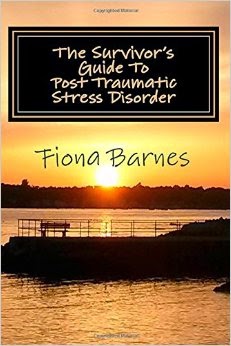*****
I expected publishing a book to be difficult. I never expected one of those difficulties to originate in the subject matter of PTSD. As I began to query agents, I realized that there is an anti-PTSD bias present in the industry. One agent said, ‘PTSD has been overdone. Too many books have PTSD characters. We don’t need any more.’
This surprised me. In the course of my research for Crossing the Line, I too, like the questioner to Code Green, had difficulty finding resources relating to PTSD, particularly in the context of First Responders and rape survivors. While researching the rebuilding of solid relationships post-rape (non-incestual and beyond the immediate crisis), I found a grand total of: ZERO. I’m still looking…
So why the disparity? Why does the industry believe there are so many, yet those struggling with the issue find so few?
First off, there ARE books out there. I don’t want to discount the impact of these great books, and I will detail the ones I am aware of at the end of the post. However, a book’s reach is only as good as its marketing, and marketing a book is terribly difficult, even in this age of Amazon, Google, and social media. This is where organizations such as Safe Call Now and Code Green Campaign come into play. As they become more widely known as clearinghouses for information, they can help close the gap.
Secondly, there are some writers who feel or recognize the pathos of PTSD and wish to express it, but they lack the skill to craft a story well. They avoid doing the research into the topic, throw in a cursory character with nightmares, and call it done. The industry sees right through it, and if they do not, the readership certainly does. Unfortunately, agents and publishers seem to then retaliate, not against the poor craft, but against the subject matter of PTSD, equating the topic with ‘mindless plot complication’ instead of ‘true conflict.’ Crossing the Line only touches the surface of PTSD, but I went far enough to realize that to write PTSD and write it well is extremely difficult. My hat is off to anyone who can portray it deeply, accurately, and evocatively.
Finally, because PTSD can originate from many differing situations and be expressed in a variety of ways, any one treatment seems lacking. There is no cookie-cutter experience or expression, no standard form. Those on the inside of the PTSD community may realize this diversity, while oftentimes those on the outside lack awareness. This situation is not unique to PTSD. I see similar struggles in the areas of neurodiversity, race, ability, and economic standing. Literature today is suffering growing pains. If we desire to see issues faced and expressed outside of the mainstream, we need to support an environment that caters to diversity. Organizations like We Need Diverse Books helps to promote this initiative.
So what is available?
FTC disclosure: I receive NO compensation, monetary or otherwise, from these links.
FIRST RESPONDERS & PTSD
RAPE & PTSD
A MAN'S GUIDE TO HELPING A WOMAN WHO HAS BEEN RAPED
AFTER SEXUAL ASSAULT: A RECOVERY GUIDE FOR SURVIVORS
If you know of others, please e-mail me, and I'll add them to the list.












